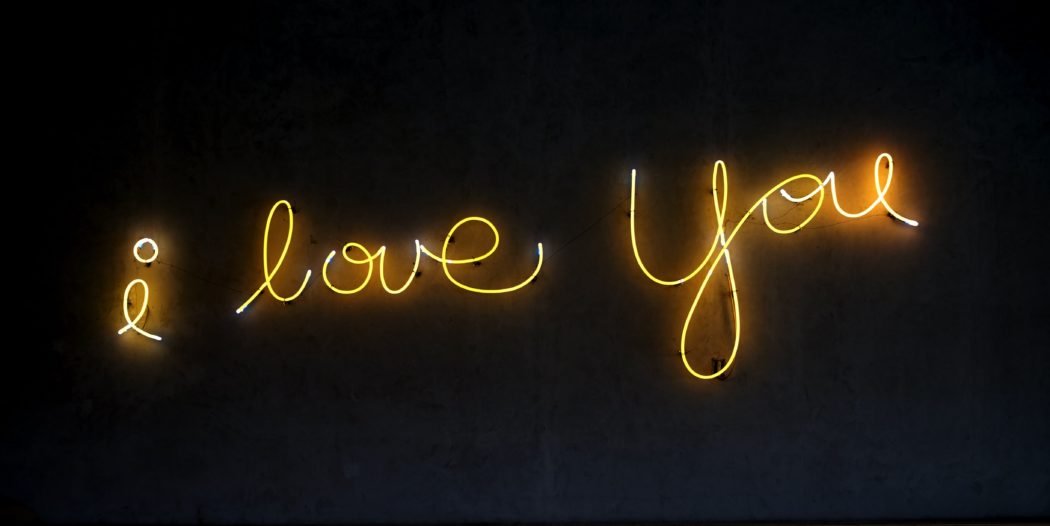Opinion: Being in love vs. loving someone
The term “love” has its own history.
If my limited knowledge of etymology — but my practiced ability to Google — is to be trusted, “love” can trace itself all the way back to the Proto-Indo-European root “leubh-,” meaning “to care, desire, love.”
Since Proto-Indo-European is actually a hypothetical common ancestor of Indo-European languages, we draw evidence of its existence from other languages. The root “leubh-” forms part of the Sanskrit lubhyati (“desires”), the Latin lubet and later libet (“pleases”). The Old English lufu (“feeling of love; romantic sexual attraction”), the German liebe (“love”). It also forms part of words like “belief” or “believe” or “leave.”
We write songs about being in love, fill pages with poetry trying to capture it. We create films and choreograph dances to express what it is to be in love, or to lose it. We write novels chronicling the experience. Humans love to be in love. But so often we focus on the being in love, and maybe not enough on actually loving that those cliche stories of heartbreak are all too familiar to us.
Love is also often referenced as sacrifice or martyrdom in movies and books. Sacrificing what we want for someone else or compromising our desires for those of our partner. Maybe sometimes compromise is necessary, but I don’t think sacrifice should be part of the deal.
If we feel like our relationships are built around sacrifice, are they genuinely balanced relationships? I haven’t been alive all that long, but if twenty-five years has taught me anything, it’s that there’s a difference between a savior complex and actually loving someone.
Being in love is just a story we tell or perform to ourselves; glamorous, pretty and exciting – neurologically equivalent to a cocaine high. Being in love requires that it be new and uncharted, that it be an experience at every turn, that it evoke feeling (whether gut-wrenching or heart-lifting). Being in love carries with it an obligation to be interesting, missing the point completely of what loving the people in our lives really means. And relying too much on the feeling of being in love can pave the way for eventual disenchantment and disappointment.
Looking back on my current relationship, there were many opportunities for my partner and I to decide to leave one another. We could have elected not to renew our lease, simply gone our separate ways. Why it never came to that, and why we rarely fought during a time of intense financial instability, seems to be tied to silent choices that we each made (and continue to make).
Instead of being disappointed and frustrated with our circumstances, I think we both had decided that if we were, individually, suffering, then the other person probably was, too, in ways that weren’t necessarily there on the surface. We had to allow each other to deal with the stress of that instability as individuals, knowing that it would change each of us in mutually exclusive ways.
This kind of empathy should definitely have boundaries. However, my point (I guess) is that loving someone means ceasing to see them as an extension of your experience of them. Being in love is all about feeling and emotion, but genuinely loving someone has to come as something other than lubhyati or lufu.
Loving someone, I think, is flexibility. It is learning to see the familiar in new ways, to reexamine what appears to have always been there with the assumption that there is more than meets the eye. This fundamentally goes against what we are indirectly taught through consumer culture, that we should only choose what pleases us. It conflicts with the fairytale-like assumption that at some point we’ll come across someone perfect for us and it’ll all make sense, that if we simply become disenchanted with our current partner it means the right one is out there somewhere.
We use these ideas — being in love and loving — often interchangeably, but the chasm between them feels so vast. I don’t want to live my life consumed by my infatuation with another person. Sure, being in love can be exciting and new. But being in love and loving someone are not the same.
Both love and the phenomenon of being in love are rooted in intrinsically human needs, as were these terms/phrases when they were born into our languages. Loving someone, though, is ancient. It is written into the behavioral makeup of humanity — a psychological adaptation. At some point, it became better for us to live in groups, to find and share resources communally, and to form pair bonds in order to help our offspring survive into adulthood.
Love is a choice we make. We must choose to stay, we must choose to listen, we must choose to share our space with someone else. Seeing them not as an extension of our experiences of them, but as living, breathing persons who can, and inevitably will, change. Where being in love feels like our brains just took a 90-degree drop on a rollercoaster, loving someone is rooted in the mundane.
The cyclical sprawl of our lives are all we have. We wake up, we do things, we go to bed, we repeat. That love is possible within the monotonous march of time should be reassuring, if daunting. Because, while love requires flexibility, it also needs vulnerability.
I think the truth is that the feeling of being in love, in a long term relationship, can change. It doesn’t have to end in disappointment or heartbreak. It can become something resembling trust. Instead of being about fulfillment and comfort and excitement, it can become more sustainable. But I think this only happens if we allow it to become more about sharing life, and the love that comes with it, rather than about the high of being in love.

Taelor is the opinion manager for the Statesman. She grew up in Raleigh, North Carolina. She is an avid reader, drinks coffee religiously, and makes music sometimes.
taelor.candiloro@usu.edu

